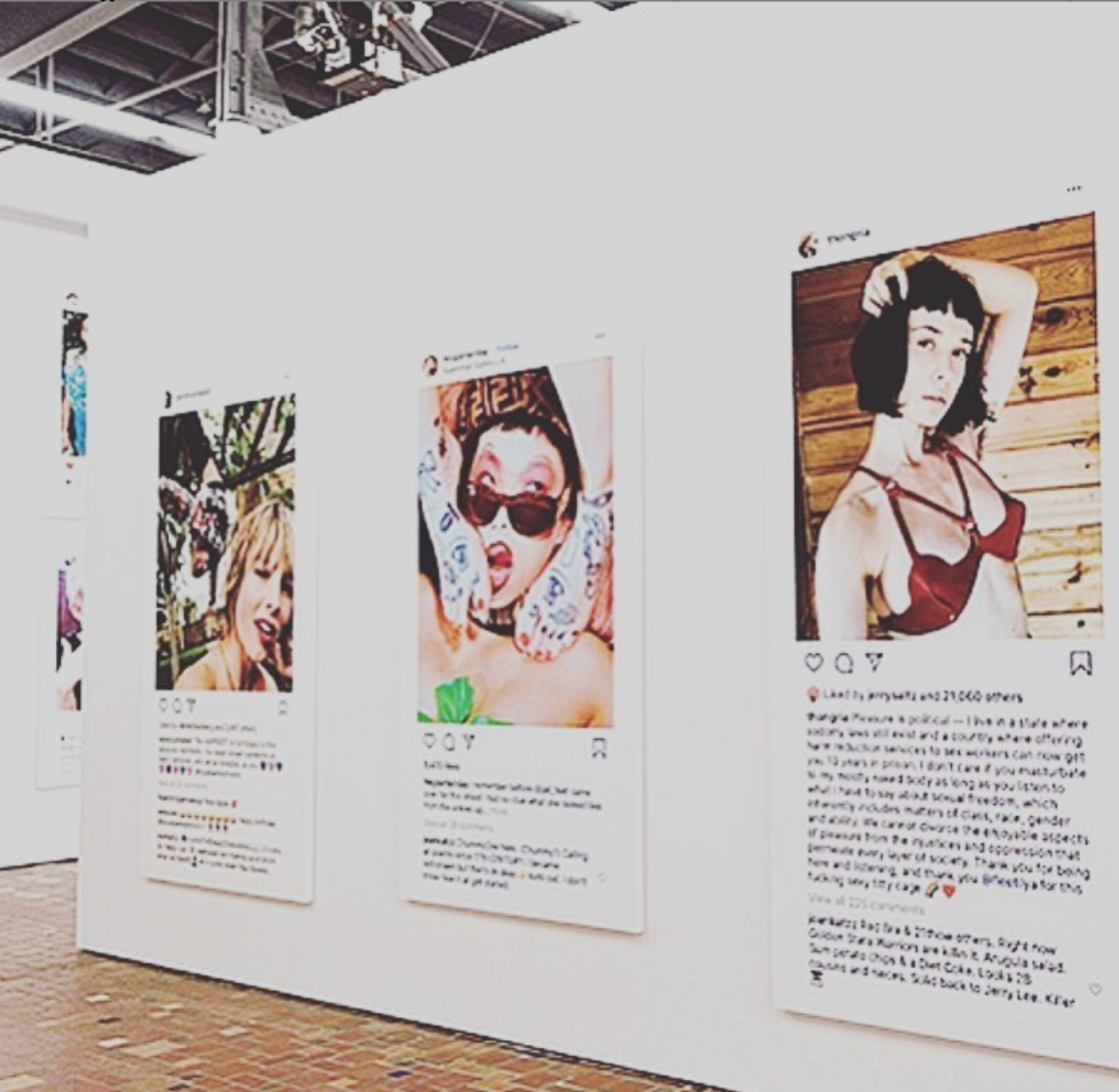MANHATTAN (CN) — Appropriation artist Richard Prince will pay out two photographers thanks to a pair of Thursday judgments in Manhattan federal court, putting to rest a lengthy copyright battle over his Instagram-based print series “New Portraits.”
The series featured screenshots of Instagram posts, which Prince enlarged and printed to canvas. Prince added his own snarky comments to each “post,” but pulled the photographs themselves from other Instagram accounts — some of them by professional photographers.
The two Thursday judgments from U.S. District Judge Sidney Stein awarded damages to two of those photographers, Donald Graham and Eric McNatt.
“After over eight years of extremely expensive litigation and going through the mediation process, Richard Prince agreed to settle two lawsuits, without any admission that he willfully infringed and without a determination on fair use,” Brian Sexton, general counsel to Richard Prince, said in a statement to Courthouse News. “We are extremely pleased that these cases have finally been disposed of on favorable terms and Richard can get back to making art.”
The photographers' lawyer pointed to the upholding of copyright law.
“We are pleased that in these ‘David vs. Goliath’ cases, judgments were finally entered against Prince and his galleries,” David Marriott, an attorney for the photographers, said in a statement. “This outcome reinforces that there is no special standard of fair use applied to famous and powerful art world figures that is different from the standard applied to everyone else. There is one copyright law — and no one is above it.”
The judgments stated that Prince will owe Graham and McNatt “an amount equal to five times the sales price” of each respective “New Portraits” print. Sexton said that this amounted to $450,000 to McNatt, $200,000 to Graham and $250,000 in other costs.
Prince is also ordered to stop “reproducing, modifying, preparing derivative works from, displaying, selling, offering to sell or otherwise distributing” the prints in the future.
Graham brought the first of the two lawsuits in 2016, claiming that Prince had stolen his 1998 photo titled “Rastafarian Smoking A Joint.” Four years later, McNatt filed his suit over a photograph Prince used of Kim Gordon, of Sonic Youth fame, who happened to be a friend of Prince.
Last year, Prince had tried to get a summary judgment in his favor on the grounds of fair use. But Stein refused to toss the suit, ruling that Prince “indeed tested the boundary between appropriation art and copyright infringement” — perhaps the goal of the provocative appropriation artist.
“'Portrait of Rastajay92' and 'Portrait of Kim Gordon' make several modifications which are in the court's view, both minimal and insufficient to warrant the conclusion that they result in an aesthetic and character different plaintiffs' original photographs,” Stein wrote in her 2023 ruling. “Defendants' attempt to cast the images as satire or parody fails, and Prince's stated purpose in creating these portraits has been both inconsistent and has only limited relevance in light of the similarities between the original and the secondary works.”
The controversial “New Portraits” series was first displayed in 2014 at a gallery space in New York City owned by Gagosian Gallery — a co-defendant in Graham’s lawsuit.
Since then, the prints have been displayed in galleries around the world. In 2015, they were shown for more than a month at Blum & Poe’s Tokyo gallery, a co-defendant in McNatt’s claim.
Even outside of the suits brought by Graham and McNatt, “New Portraits” has been causing a stir for more than a decade.
One of the collection’s prints featured photographs from the softcore porn site Suicide Girls, which retaliated by selling their own copies of Prince’s canvases at a steep discount. Suicide Girls sold their duplicate versions of Prince’s pieces for $90, a far cry from the nearly $100,000 price tag on the originals, which the site promised to donate to charity.
Graham and McNatt’s intellectual property theft claims closely resemble those brought nearly two decades ago by Paris-based photographer Patrick Cariou. In 2007, Gagosian displayed a series of Prince pieces based on Cariou’s “Yes, Rasta,” a photo book that documented the photographer’s yearslong trip to a remote region in Jamaica.
Prince added gas masks, guitars and other accessories to Cariou’s photo subjects without permission, prompting a lawsuit from the photographer that ended in a landmark Second Circuit ruling in 2013. U.S. Circuit Judge Barrington Parker, who wrote the opinion, found that a vast majority of Prince’s works in that collection qualified as fair use.
"Where Cariou's serene and deliberately composed portraits and landscape photographs depict the natural beauty of Rastafarians and their surrounding environs, Prince's crude and jarring works, on the other hand, are hectic and provocative," Parker wrote.
Subscribe to Closing Arguments
Sign up for new weekly newsletter Closing Arguments to get the latest about ongoing trials, major litigation and hot cases and rulings in courthouses around the U.S. and the world.









